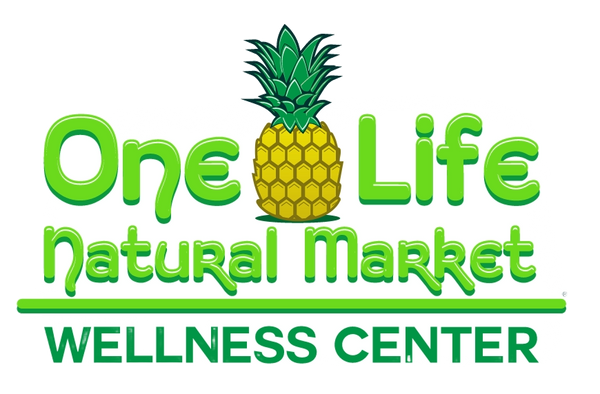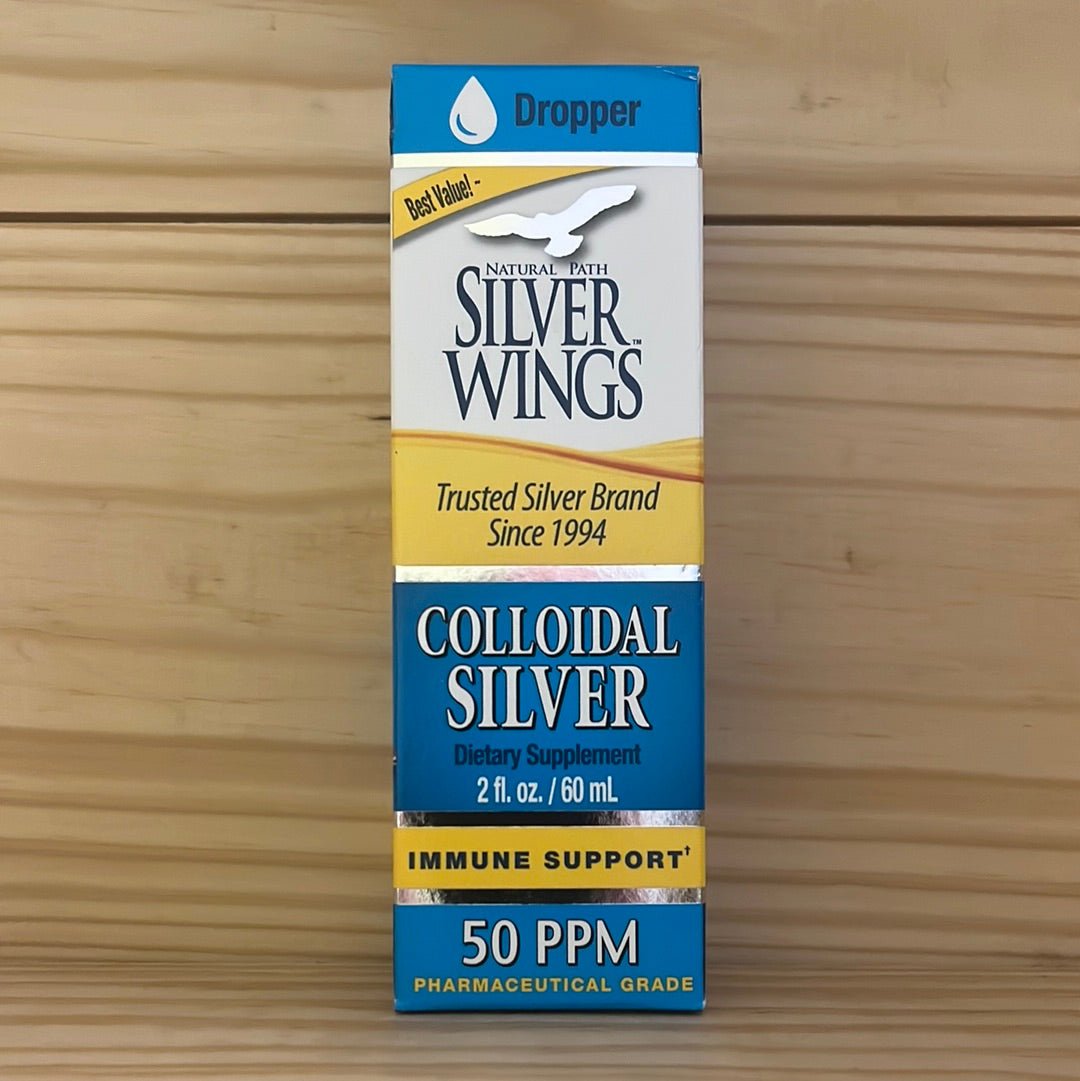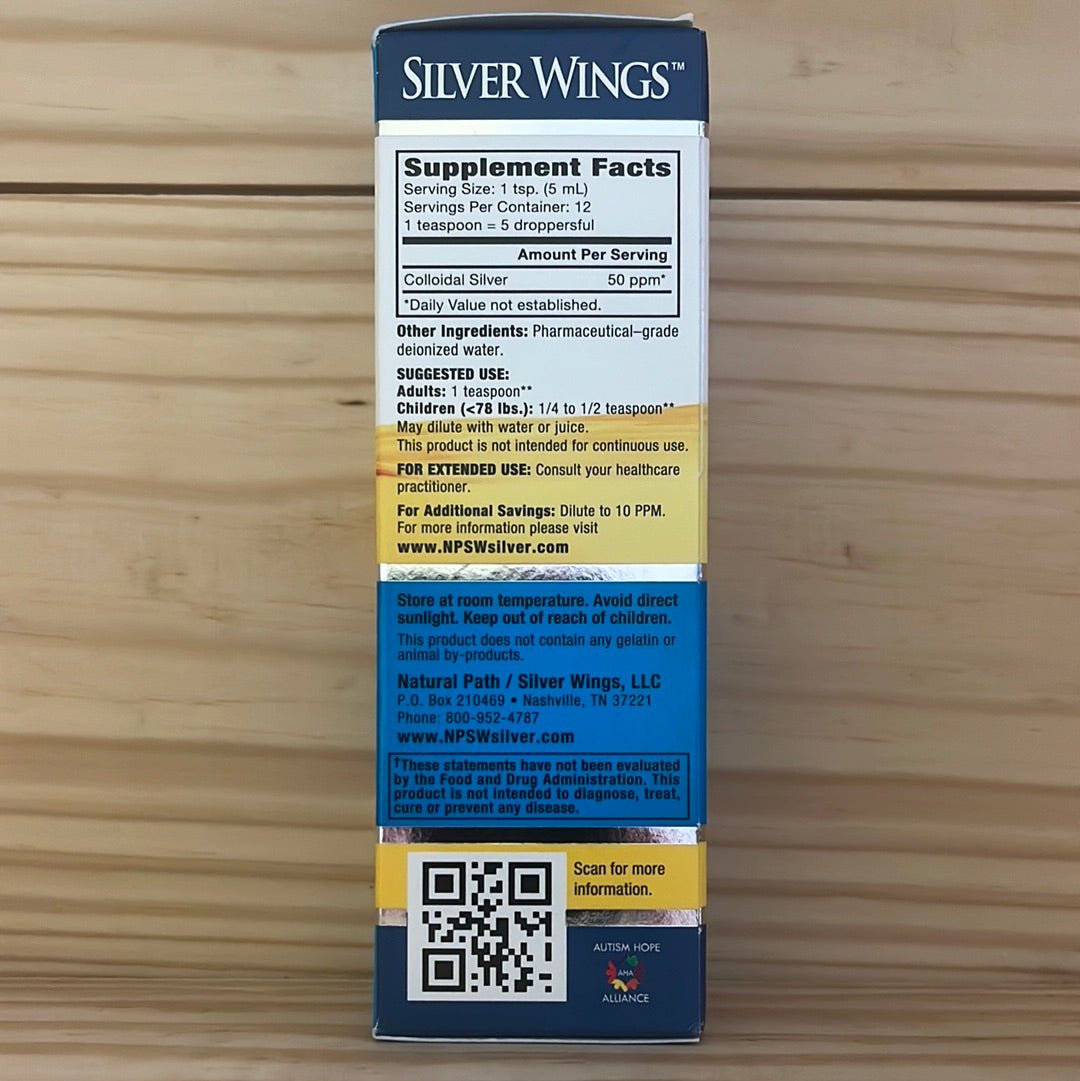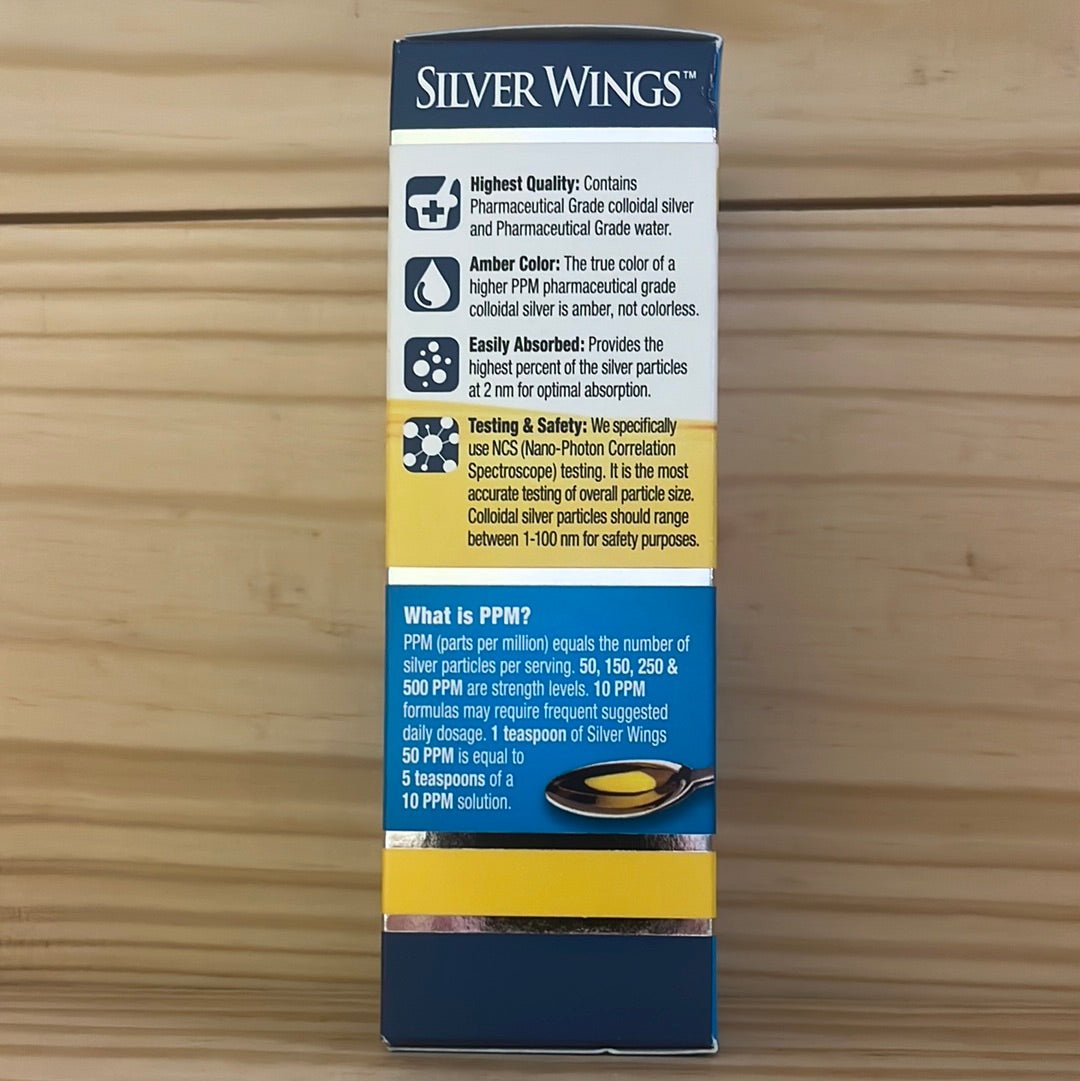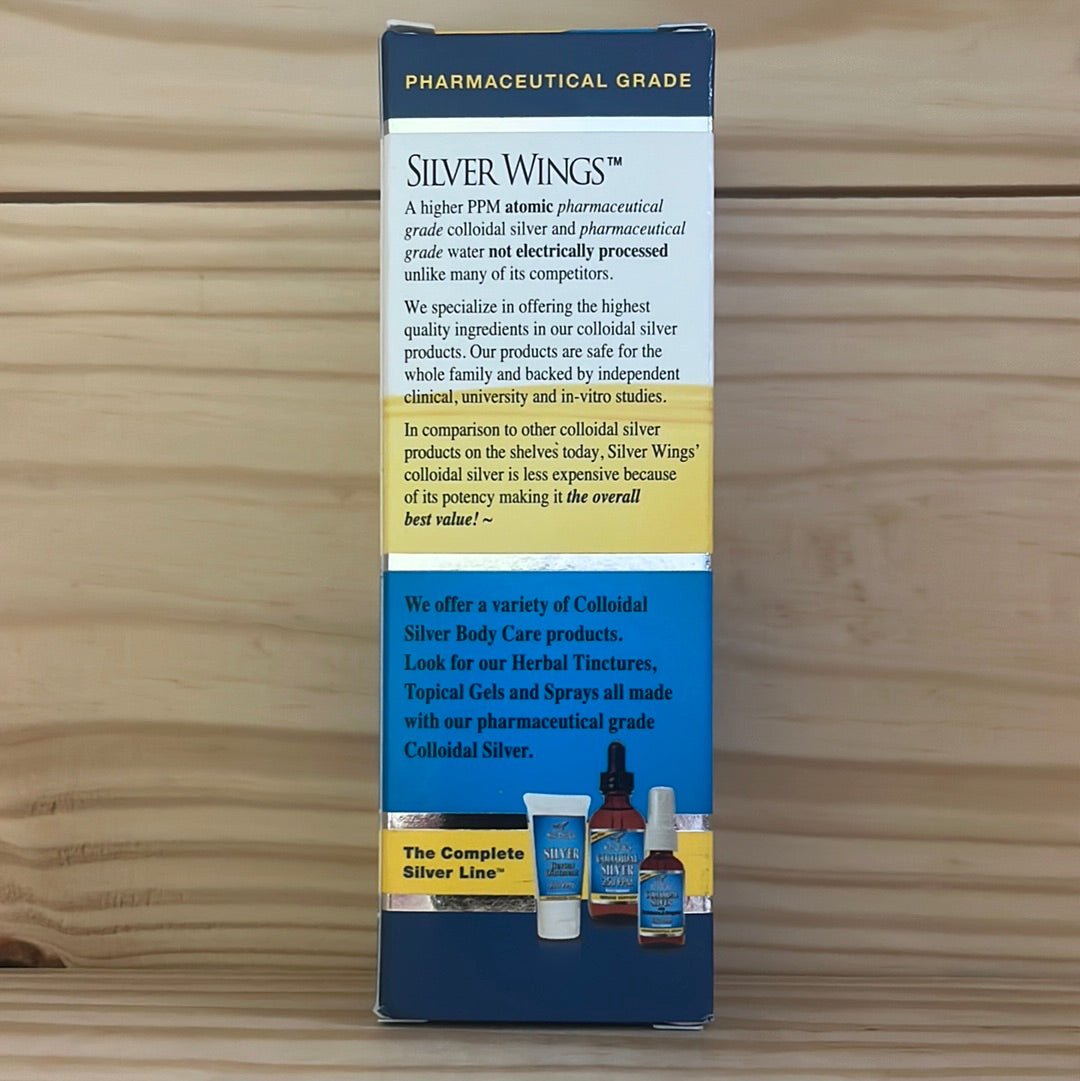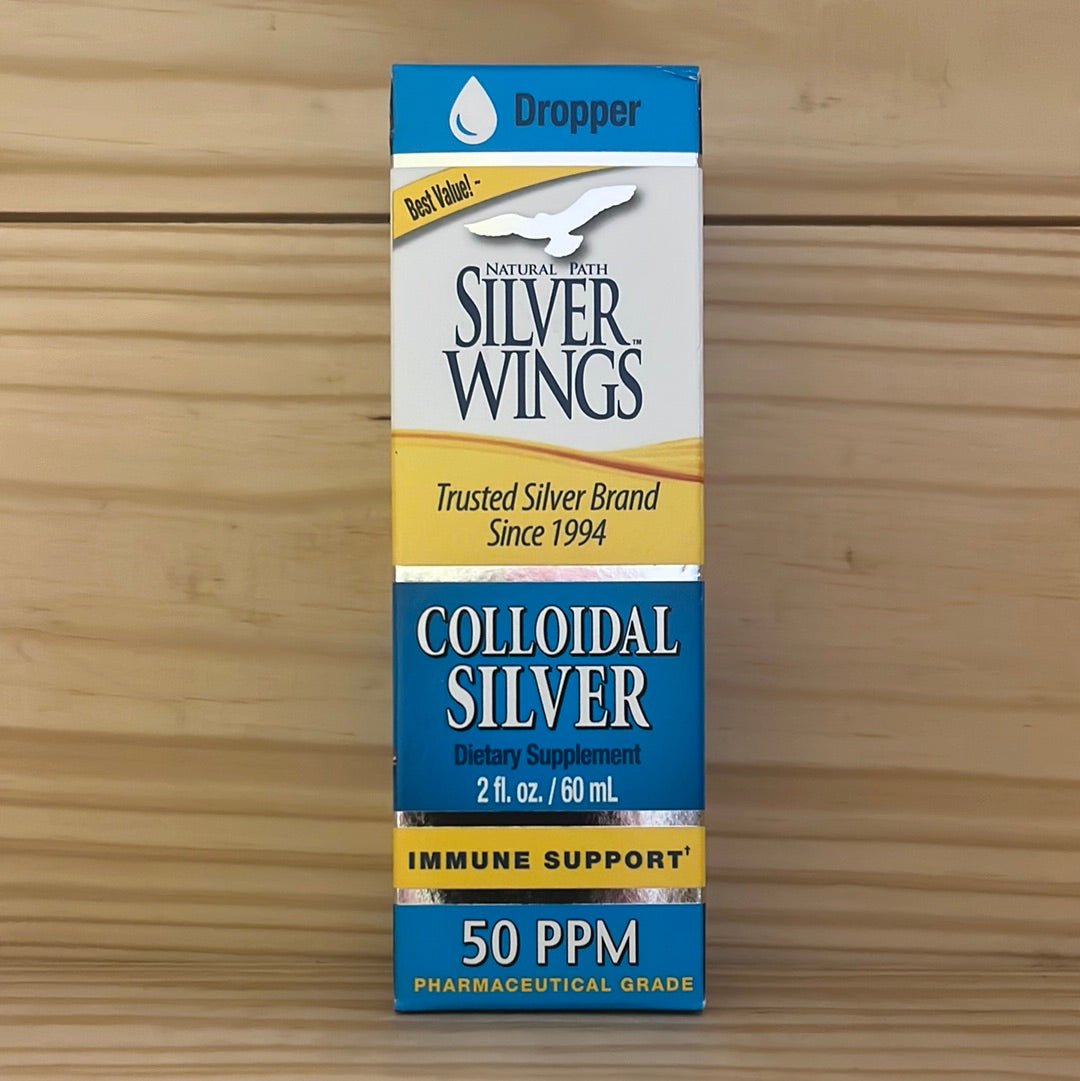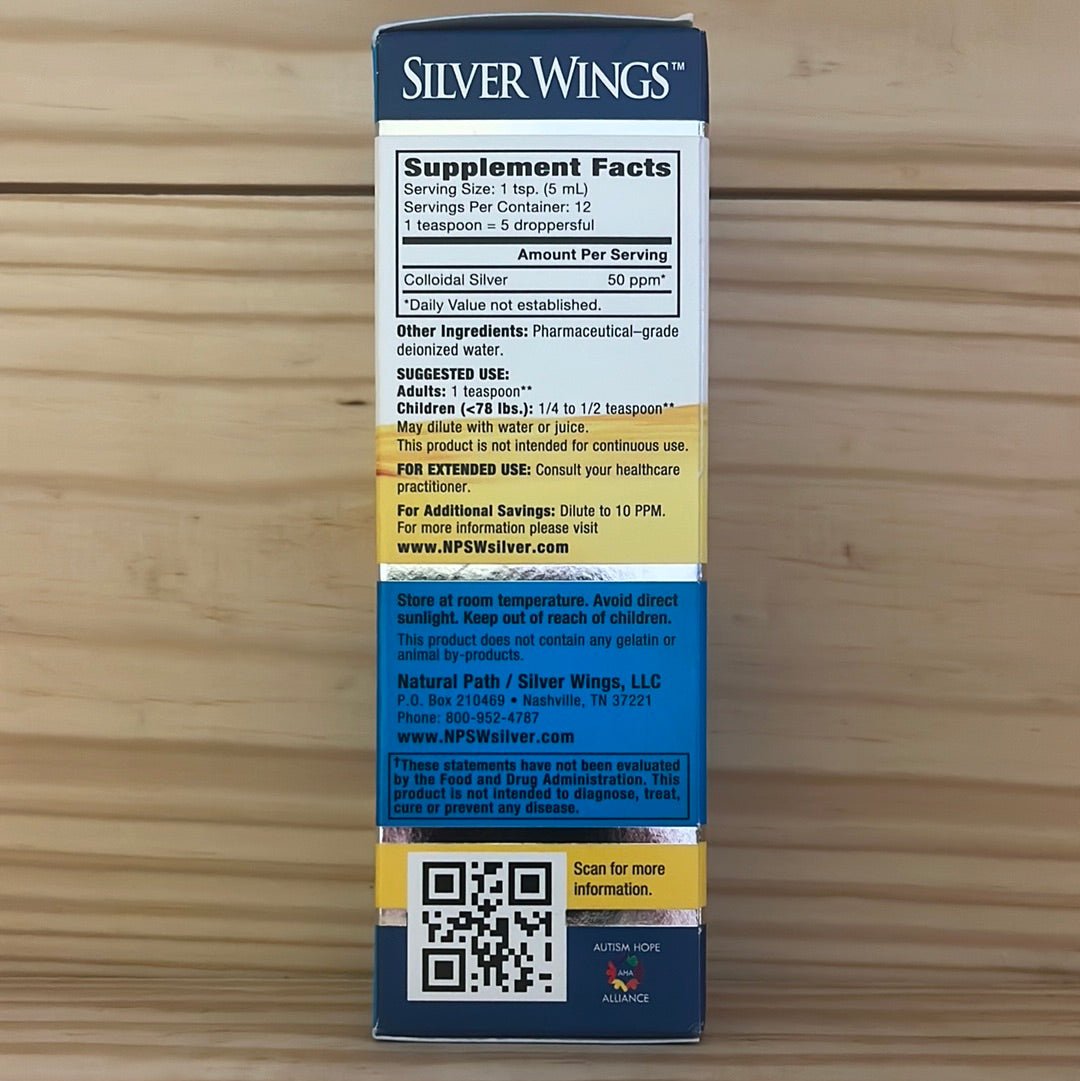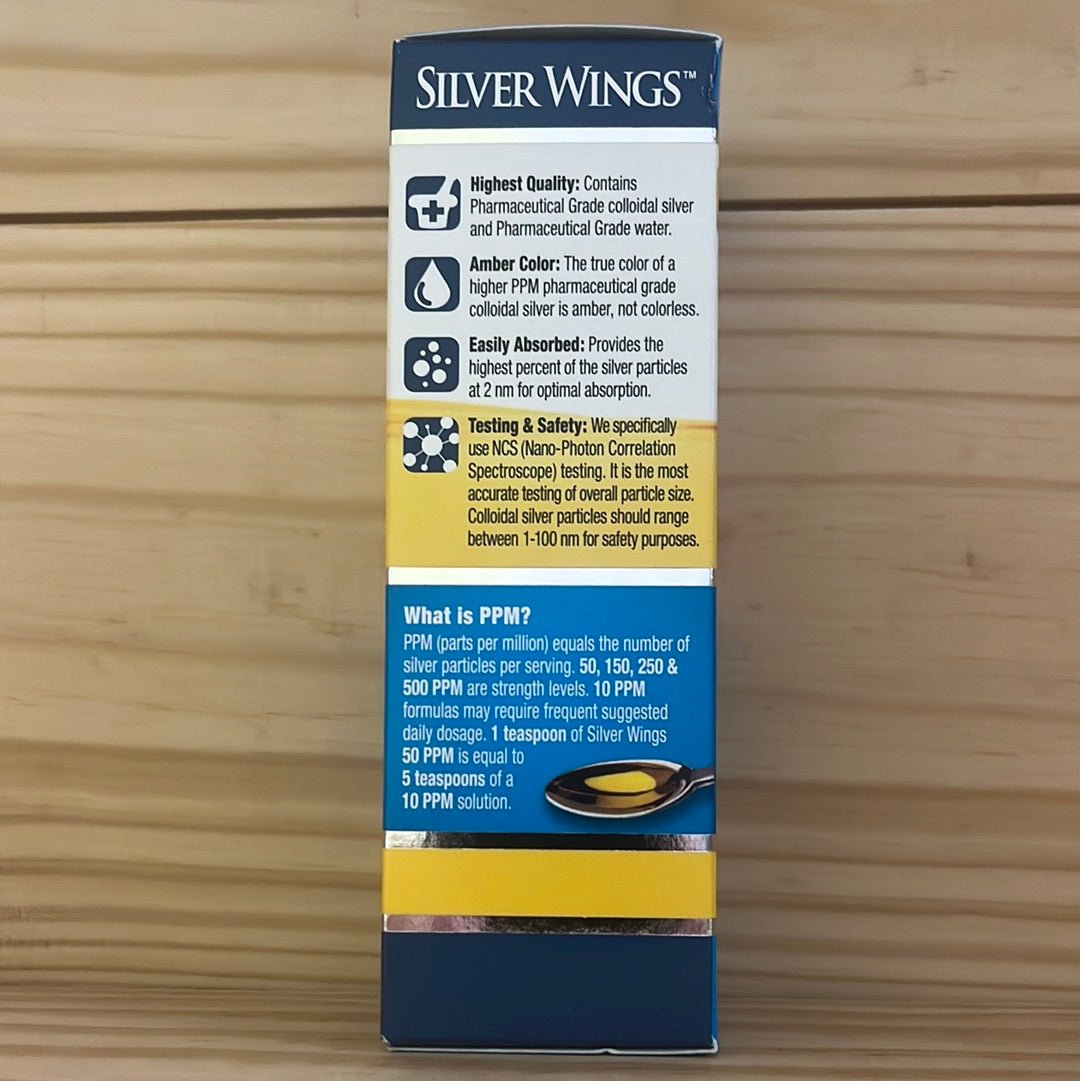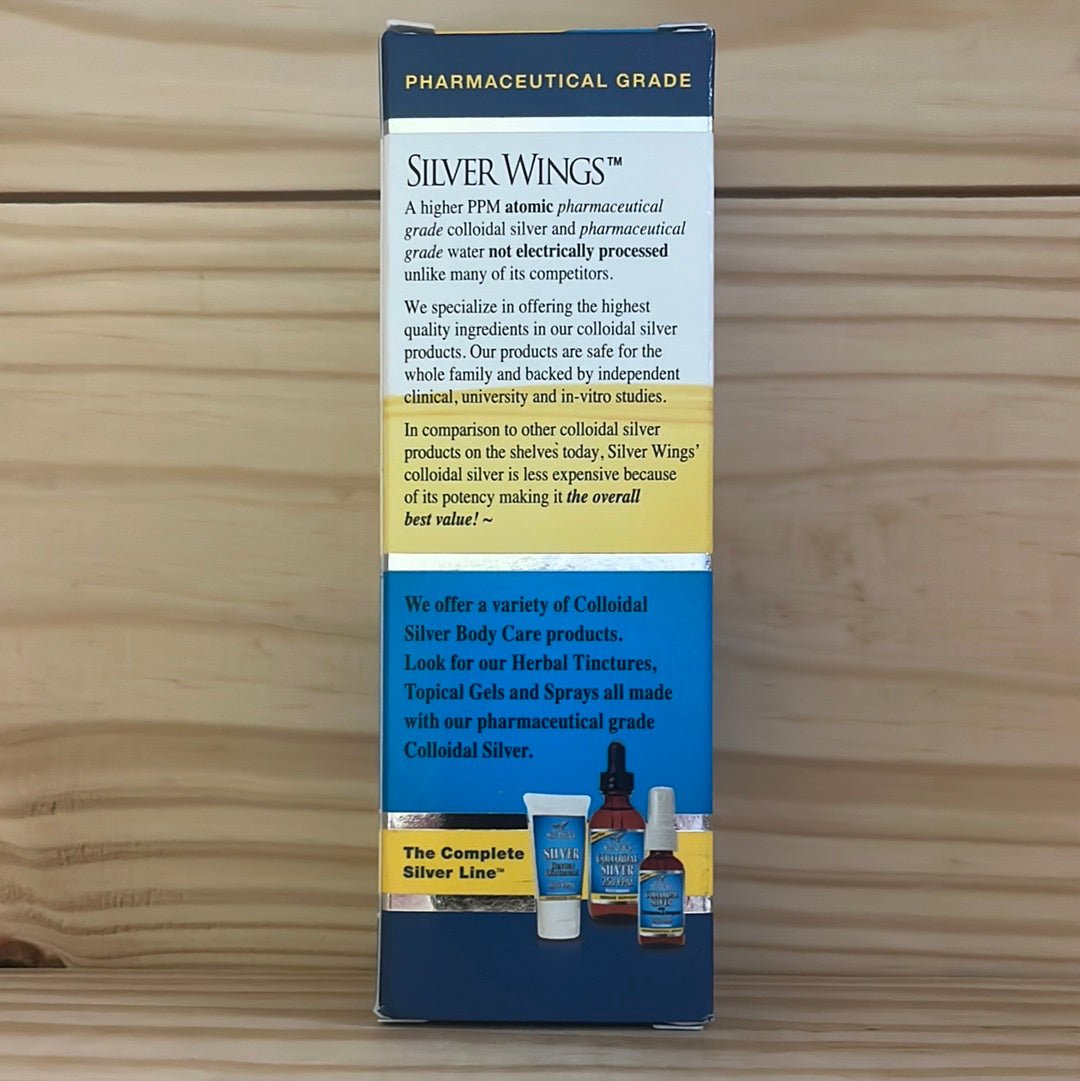Natural Path / Silver Wings Colloidal Silver is superior in quality and concentration in comparison to other products available on the market and our competitors. There are no chemicals used in the process. Our products are formulated at 50 PPM, 250 PPM and 500 PPM (parts per million). NPSW’s silver is combined with pharmaceutical grade water according to a proprietary formula. Testing and assays of the finished products are completed by qualified independent labs for micron particle size, parts per million, and other analytical tests for purity. Every bottle is packed with extreme care for ultimate protection in transit. Our manufacturing facility is inspected by the State and Federal Food and Drug Administration divisions for food and dietary supplements. We comply with regulations of the American Society of Testing Materials (ASTM), the American Chemical Society (ACS) for water purity and Good Manufacturing Practices for dietary supplements.
Colloidal Silver is a Pure Mineral Element
Colloidal Silver is pure, metallic silver, in particles of 15 atoms or fewer, each with a positive electric charge. These electrically charged particles of silver are extremely small, usually ranging from about 1-10 Nanometers (0.001 to about 0.01 microns) in diameter, and are suspended in pharmaceutical grade water. The force of the electric charge is stronger than the force of gravity, so the silver particles remain suspended.
Color tinge of colloidal silver is an optical effect resulting from the quantity of atoms per micro cluster. As a rule, the higher the concentration of colloidal silver, the darker the color of the solution - a dark yellow or brownish amber color being the highest quality and concentration. It is nonaddicting, the body does not build up tolerance to it and studies show that properly prepared colloidal silver is not deposited under the skin like other silver compounds, which have been documented to cause a bluish gray tint to the skin, known as "Argyria". Furthermore, it is generally known to be harmless to mammals, reptiles, plants and living things, except one-celled organisms (which use a different method and chemistry of oxygen metabolism).
